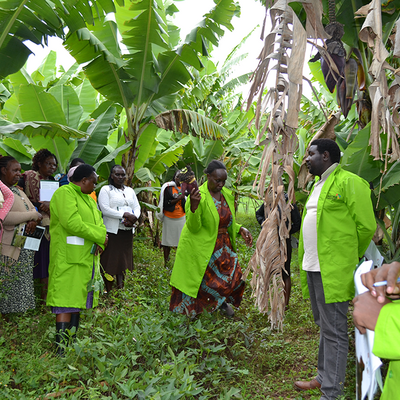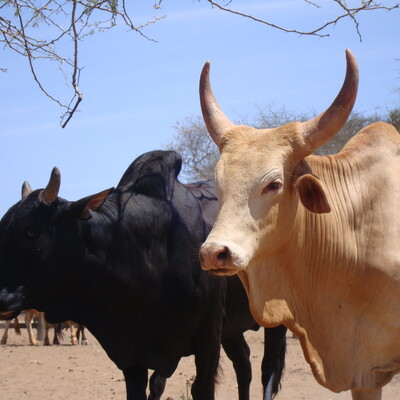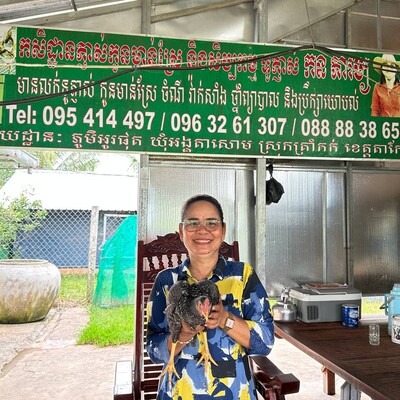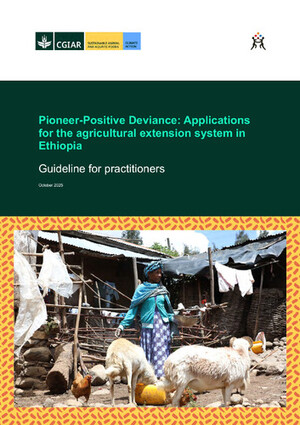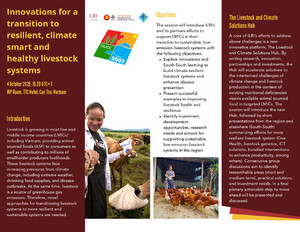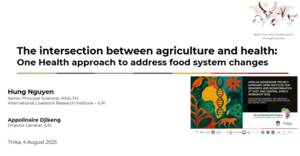
Forging partnerships to improve climate agro-advisory services for Kenya’s farmers
Weather forecasting and reliable agricultural advisory services are an important part of rainfed agricultural systems, especially in developing economies. Increased weather variability and rising temperatures as a result of climate change are generating greater demand by farmers for better and more timely climate information.
In Kenya, the Kenya Agricultural and Livestock Research Organization (KALRO) and the Kenya Meteorological Department (KMD) and partnering organizations provide agroclimatic advisory services and weather forecasts to farmers through multimedia platforms and a network of extension officers.
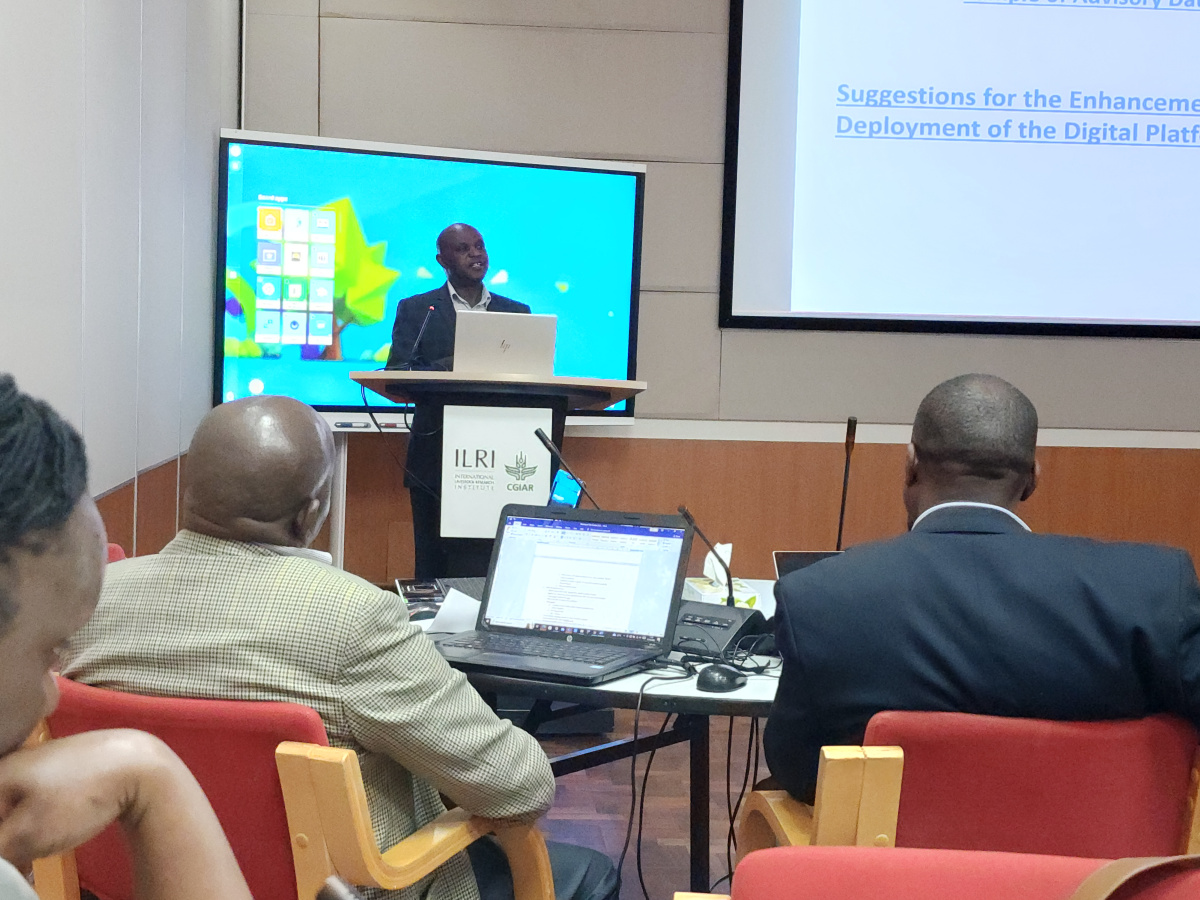
William Ndegwa of Kenya Meteorological Department makes a presentation at a workshop hosted by CGIAR. PHOTO: ILRI/David Ngome
A recent workshop jointly hosted by ILRI, KALRO and KMD under the Accelerating Impacts of CGIAR Climate Research for Africa (AICCRA) program focused on the potential synergies across their ongoing agro-advisory efforts to identify areas where the three organizations could collaborate to improve weather-based agro-advisory services to farmers. AICCRA works to make existing climate information services and climate-smart agriculture more accessible to millions of smallholder farmers across Africa.
William Ndegwa, who leads the Education and Training Institute at KMD, says that in addition to finding ways to improve their collaboration, ILRI, KALRO and KMD will broaden their partnerships with other organizations working to empower farmers through climate change resilience.
In this new collaboration, KMD will provide KALRO with data in a machine-readable format that can be easily incorporated into KALRO’s messaging platforms. KALRO disseminates its advisory services to farmers through an online portal and text messaging service via the Kenya Agricultural Observatory Platform (KAOP).
ILRI will provide a crowdsourcing platform called KAZNET to help digitalize various data collection efforts from the field by both KALRO and KMD.
According to Ram Dhulipala, a senior ILRI scientist specializing in digital agriculture and innovation, the KAZNET application will improve the resolution of ground-truth data and augment the delivery and quality of agri-climatic advisories.
‘KAZNET will help automate data collection but most importantly, it will speed up information flow to scientists for more accurate decision-making’, says Dhulipala.
Other partners involved in discussions are MercyCorps through its AgriFin project, which develops climate-smart digital tools for farmers, and TomorrowNow, a non-profit USA-based weather forecasting and research organization.
One of AICCRA’s goals is to promote collaborations with and among partners to help improve the resolutions of the weather and related data they obtain and also to make their information more actionable. AICCRA is collaborating in a similar arrangement in Senegal and Zambia under an agricultural data hub initiative.






